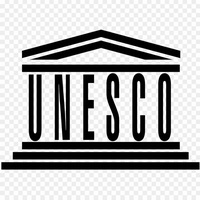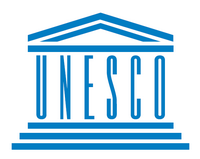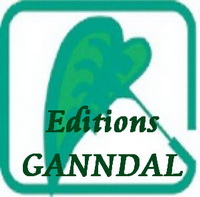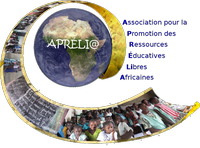Inclusive Education
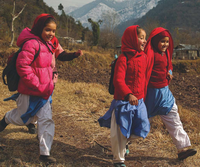 Source : UNESCO
Source : UNESCO
Introduction
The COVID-19 pandemic has caused the largest disruption of education in history. Most governments around the world have temporarily closed schools and other learning spaces in recent months in an attempt to contain the spread of the virus. At the peak of the pandemic in April 2020, these nationwide closures impacted more than 1.5 billion students, or over 90% of the world’s student population, from pre-primary to higher education in 200 countries.
This unprecedented disruption to education has the potential to roll back substantial gains made on girls’ education in recent decades, with broader immediate and longer-term effects on the achievement of the Sustainable Development Goals, including those related to poverty reduction, health and well-being, inclusive quality education and gender equality. The most marginalised, including girls with disabilities, those in conflict-affected contexts, remote and rural communities and those in the poorest quintile, are expected to be most affected by COVID-related school closures, facing additional constraints on their ability to fulfil their right to education, health and protection, among other rights.
- Détails
- Écrit par : G. Puiségur
- Catégorie : Inclusive Education
- Clics : 1636
Lire la suite : Building back equal: girls back to school guide
The year 2019 celebrated the 25th anniversary of the World Conference on Special Needs in Education, held in Salamanca, Spain. At the conference, representatives of 92 governments and 25 international organizations adopted a Framework for Action that called on schools to welcome all children, regardless of their physical, intellectual, social, emotional, linguistic or other characteristics.
The principles elaborated in Salamanca have set the foundation for understanding the importance of inclusion in education. Since then, the concept of inclusion has broadened, emphasizing the need to reach all learners, on the assumption that every learner matters equally and has the right to receive relevant, quality, equitable and effective educational opportunities.
- Détails
- Écrit par : G. Puiségur
- Catégorie : Inclusive Education
- Clics : 1692
Lire la suite : Towards inclusion in education: Status, trends and challenges
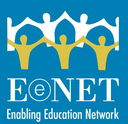 Source : EENET (Enabling Education Network)
Source : EENET (Enabling Education Network)
This resource offers an alternative and engaging format for basic training to help teachers become more learner-centred and inclusive.
“An Inclusive Day: Building foundations for learner-centred, inclusive education” contains 10 short videos and manuals. The videos show some of ways in which learners can be included or excluded during the course of a typical school day. The training package can be used by trainers as part of a training course for teachers and other educators, or it can be used by individual teachers as a self-study video.
A brief introduction to this video resource is available in a PowerPoint presentation (7MB).
The videos and training manuals are available under the Creative Commons License Attribution-NonCommercial-ShareAlike 4.0 International.
- Détails
- Écrit par : G. Puiségur
- Catégorie : Inclusive Education
- Clics : 817
 Source : EENET (Enabling Education Network)
Source : EENET (Enabling Education Network)
EENET has made 2 training videos and manuals focusing on inclusive early childhood education. These 2 new videos aim at looking at:
- Inclusive teaching and learning in early childhood education settings;
- Inclusive transition to, from and within early childhood education.
The Inclusive Beginnings package contains:
✔️ Introduction booklet
✔️ Inclusive practice - video and training manual
✔️ Inclusive transition - video and training manual
✔️ Advocacy booklet (coming soon)
You can watch the videos and download the manuals here
- Détails
- Écrit par : G. Puiségur
- Catégorie : Inclusive Education
- Clics : 793
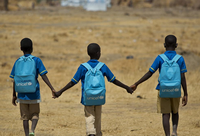 Source : UNICEF
Source : UNICEF
UNICEF and its partners are driving an innovative solution called Accessible Digital Textbooks for All, to make textbooks available, affordable and accessible for children with disabilities in all contexts. We cherish the printed word, but it isn’t always accessible to everyone. Children with disabilities remain one of the most marginalized and excluded groups and, for them, gaining access to quality education can often be challenging. By adding specific features to digital formats and following Universal Design for Learning principles, textbooks can be made accessible to students who are blind or have low vision, to those who are deaf or hard of hearing, and to those who have intellectual, developmental or learning disabilities, among others. And it doesn’t stop there: these features can enrich the learning experience for all children.
The initiative brings writers, publishers, teachers, organizations of persons with disabilities, technologists and ministry of education representatives together to develop the guidelines needed to produce textbooks in accessible digital formats. They jointly set standards for features like narration, sign language, interactivity and the audio description of images. The Accessible Digital Textbooks for All initiative improves access to education, helping all children to learn and thrive together.
The global portal is designed to promote knowledge sharing and to support the development and implementation of the Accessible Digital Textbooks for All initiative.
- Détails
- Écrit par : G. Puiségur
- Catégorie : Inclusive Education
- Clics : 808
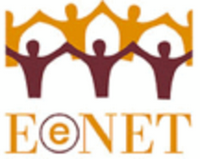 Source : Enabling Education Network (EENET)
Source : Enabling Education Network (EENET)
This is a selection of news items that concern aspects of InclusiveEducation. They are meant as a very small window on how inclusion is being talked about in different countries. We do not necessarily agree with the content of these stories but it is useful to engage with how inclusion is advocated for, or in some cases, against. At the very least we hope that they are the basis for discussion about how we can make inclusion possible. A look at the two sides of the “Inclusive Education Coin”
📌 * NEW Posters * EENET Inclusive Home Learning
📌 EENET Home learning posters – printed copies now available
📌 Two new documents looking at education during Covid-19 and the challenges of returning to school
📌 [Webinar] Inclusive Early Childhood Education in Middle and Low-income Contexts [webinar recording and presentations are accessible]
📌 Fostering an Inclusive Classroom
📌 Special education students are not just falling behind — they’re losing key skills, parents say
📌Can the Covid-19 pandemic boost inclusive education?
📌 Pakistan is Using Innovative Approaches for Inclusive Education: GEM Report 2020
📌Mainstreaming Inclusive Education In South Africa
- Détails
- Écrit par : G. Puiségur
- Catégorie : Inclusive Education
- Clics : 1071
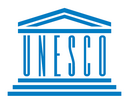
Since COVID-19 burst onto the world stage, headlines have mounted about the millions of children suddenly out of school due to the closures during countries’ lockdowns. Lessons from earlier school closures, such as the Ebola crisis in West Africa, tell us that the most marginalised children may be left behind. The 2020 Global Education Monitoring Report also sounds the alarm, warning that educational opportunities continue to be unequally distributed, leaving the most marginalised children at higher risk of further exclusion because of COVID-19-related school closures. That begs the question – what about the 1 in 5 children who were previously out of school or those in school but on the margins, at a high risk of dropout before the COVID-19 pandemic struck?
- Détails
- Écrit par : G. Puiségur
- Catégorie : Inclusive Education
- Clics : 1052
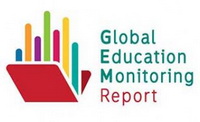 Source : UNESCO
Source : UNESCO
In line with its mandate, the 2020 GEM Report assesses progress towards Sustainable Development Goal 4 (SDG 4) on education and its ten targets, as well as other related education targets in the SDG agenda. The Report also addresses inclusion in education, drawing attention to all those excluded from education, because of background or ability. The Report is motivated by the explicit reference to inclusion in the 2015 Incheon Declaration, and the call to ensure an inclusive and equitable quality education in the formulation of SDG 4, the global goal for education. It reminds us that, no matter what argument may be built to the contrary, we have a moral imperative to ensure every child has a right to an appropriate education of high quality.
The Report also explores the challenges holding us back from achieving this vision and demonstrates concrete policy examples from countries managing to tackle them with success. These include differing understandings of the word inclusion, lack of teacher support, absence of data on those excluded from education, inappropriate infrastructure, persistence of parallel systems and special schools, lack of political will and community support, untargeted finance, uncoordinated governance, multiple but inconsistent laws, and policies that are not being followed through.
- Détails
- Écrit par : G. Puiségur
- Catégorie : Inclusive Education
- Clics : 1093

Thursday, 23 July 2020, 09:00-12:00 (GMT)
09:00 a.m. (Dakar Time) / 10:00 a.m. (Abuja & Yaounde Time) / 11:00 a.m. (Paris Time)
The regional launch will be hosted on the platform of Zoom.
The 2020 Report Inclusion and education: All means all, addresses inclusion in education, drawing attention to all those excluded because of gender, displacement, migration, ethnicity, language, poverty, disability or other characteristics. The Report is motivated by the explicit reference to inclusion in the 2015 Incheon Declaration, and the call to ensure an inclusive and equitable quality education in the formulation of SDG 4, the global goal for education. It reminds us that, no matter what argument may be built to the contrary, we have a moral imperative to ensure every child has a right to an appropriate education of high quality.
During the launch, key findings and policy recommendations from the 2020 GEM Report on inclusion and education will be presented. Also, with a special focus on West and Central African region, pressing issues on inclusive education and related experiences will be discussed and shared by minister(s) of education, key education stakeholders and civil society in the region.
The Global Education Monitoring Report is mandated by the international community to monitor progress in education within the framework of the Global Education 2030 Agenda. Sustainable Development Goal 4 stipulates: “Ensure inclusive and equitable quality education and promote lifelong learning opportunities for all”. SDG 4 has seven targets and three implementation mechanisms and encompasses all levels of education.
Click here to register in advance.
- Détails
- Écrit par : G. Puiségur
- Catégorie : Inclusive Education
- Clics : 1040
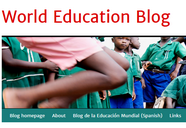 Source : Global Education Monitoring (GEM)
Source : Global Education Monitoring (GEM)
Posted on 8 July 2020 by GEM Report :
Tomorrow, the GEM Report, the Teachers Task Force at UNESCO and Education International are co-hosting an event on teachers and teaching for inclusion. Inclusion cannot be realized unless teachers are agents of change, with values, knowledge and attitudes that permit every student to succeed. Below are some of the core points to have come out of the 2020 GEM Report on teaching for inclusion that will be the focus of the event.
Inclusive teaching adapts to student strengths and needs. It requires teachers to be able to recognise the experiences and abilities of every student and to be open to diversity. They need to be aware that all students learn by connecting classroom with life experiences, and thus embed new ideas and skills in problem-solving activities. While many teacher education and professional learning opportunities are designed accordingly, entrenched views of some students as deficient, unable to learn or incapable mean that teachers sometimes struggle to see that each student’s learning capacity is open-ended.(....)
- Détails
- Écrit par : G. Puiségur
- Catégorie : Inclusive Education
- Clics : 830
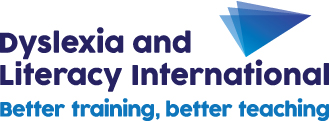 Source : Dyslexia and Literacy International
Source : Dyslexia and Literacy International
1 – ‘Supporting children with difficulties in reading and writing’
This course is for teachers to learn why some children have so much difficulty with reading and writing, often called ‘dyslexia’, and to learn more about best practice in teaching literacy to all in light of recent scientific discoveries.
2 – ‘Basics for teachers: Dyslexia – How to identify it and What to do’
This course was first presented at UNESCO in 2010 in French and English. Initially designed specifically to address dyslexia in the classroom, it is recognized by experts as a leading programme for teaching literacy to learners of all abilities.
See on Dyslexia and Literacy International website
These courses are under CC licence BY-NC-SA
- Détails
- Écrit par : G. Puiségur
- Catégorie : Inclusive Education
- Clics : 885
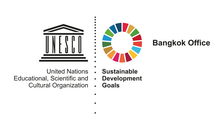 Source : UNESCO Bangkok
Source : UNESCO Bangkok
Published by UNESCO Bangkok, this publication set is a series of five guides designed for anyone who wants to do advocacy to bring about improvements in pre-service teacher education towards more inclusive education. They discuss challenges and barriers to inclusive education in different areas of teacher education and outline ideas for advocates to consider and adapt according to their specific contexts for effective advocacy towards more inclusive practices.
- Détails
- Écrit par : G. Puiségur
- Catégorie : Inclusive Education
- Clics : 819
Lire la suite : Promoting Inclusive Teacher Education Series
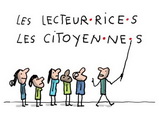 IMPROVING GENDER EQUALITY - THROUGH WRITING PRACTICES
IMPROVING GENDER EQUALITY - THROUGH WRITING PRACTICES
Our inclusive writing manual is based on an array of previously published resources, especially the Practical guide for public communication without gender stereotypes, published by the Haut Conseil à l’Égalité entre les Femmes et les Hommes (High Gender Equality Council¹ ).
Public institutions or organizations may support our project by signing the convention for public communication without gender stereotypes proposed by the HCE..
- Détails
- Écrit par : P. Puiségur
- Catégorie : Inclusive Education
- Clics : 835
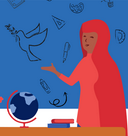 Source : UNESCO
Source : UNESCO
As part of the project “Promoting a culture of inclusion in Somalia” co-funded by UNESCO and the European Union and implemented by the Italian NGO International Committee for the Development of People (CISP) between 2018 and 2019, a Teacher’s Guide for Culture and Arts activities in schools was developed in English and Somali languages.
- Détails
- Écrit par : G. Puiségur
- Catégorie : Inclusive Education
- Clics : 806
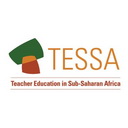 Contents :
Contents :
• Welcome to the Inclusive Education Toolkit!
• 1. Different types of schools
• 2. The inclusive teacher’s attitude and behaviour
- Détails
- Écrit par : G. Puiségur
- Catégorie : Inclusive Education
- Clics : 887
This Toolkit offers a holistic, practical perspective on how schools and classrooms can become more inclusive and learning-friendly. It builds on experience gained over many years and on the strategies and tools developed by many organizations and individuals working on inclusive education and, more recently, in the area of establishing Child-Friendly Schools. This Toolkit is meant to be user-friendly and a means of inspiration for teachers who find themselves working in ever more diverse classrooms. The Toolkit offers support for inclusive, learning-friendly environments and for creating and managing them through the full participation of educators, students, parents, and community members.
- Détails
- Écrit par : G. Puiségur
- Catégorie : Inclusive Education
- Clics : 913



